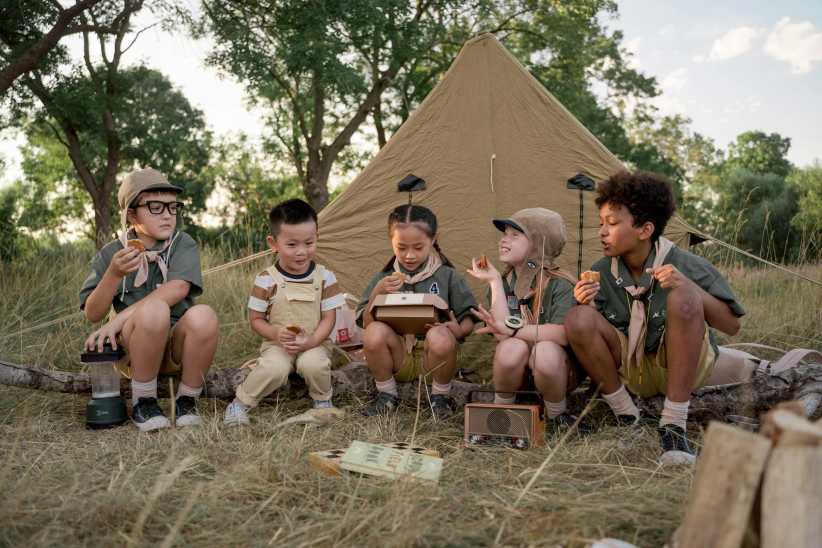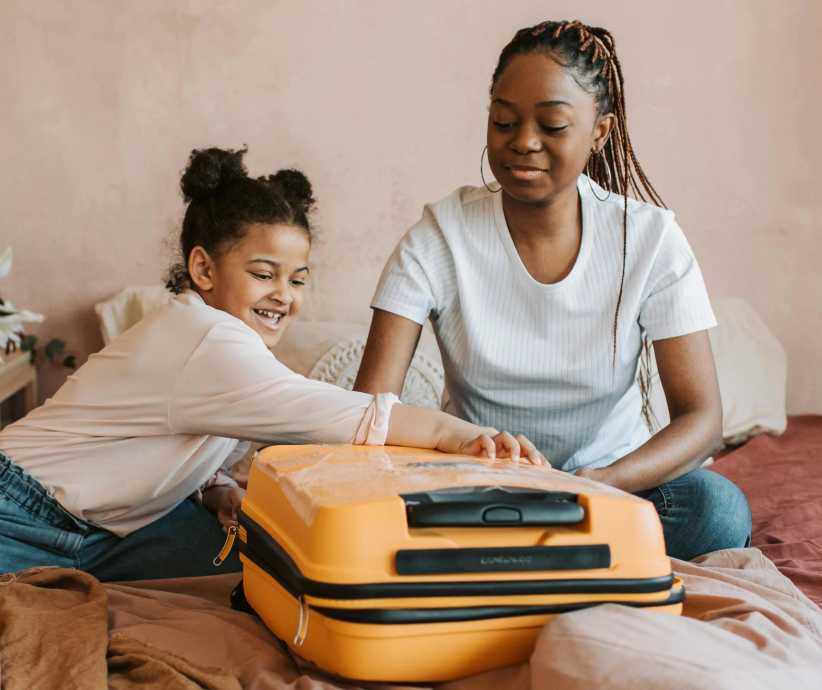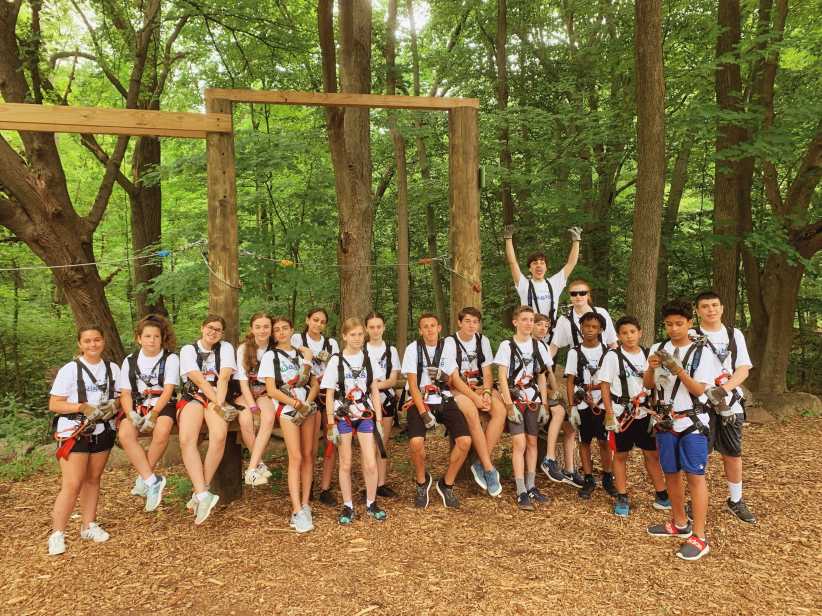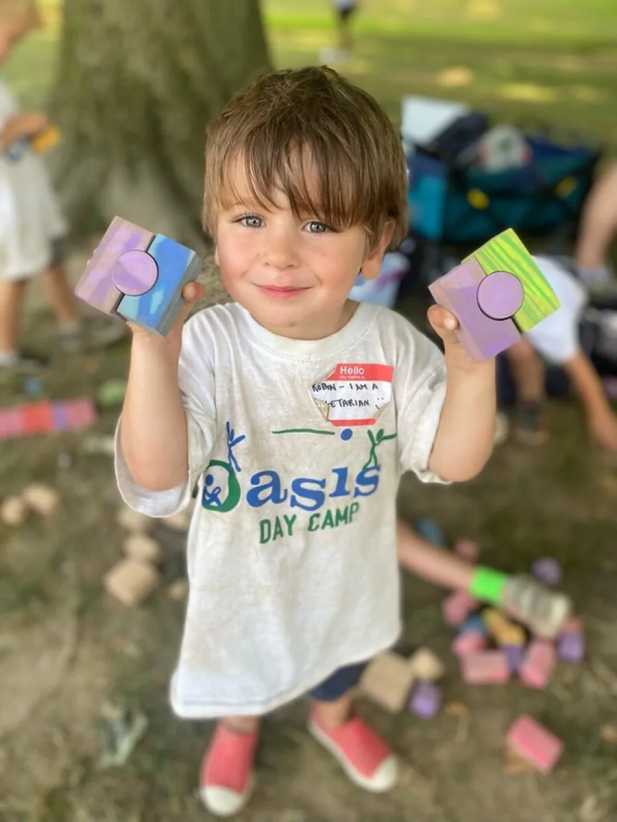
Summer camp is a unique environment where children build self-esteem through trying new activities and succeeding, learning to work together as a team, and gaining independence and problem-solving skills. Camp is also a place where children form healthy habits that are good for them both physically and developmentally. Check out these healthy habits that children foster in the camp environment.
Plenty of Physical Activity: According to the American Heart Association, one in three American children are overweight, and obesity in children has more than tripled between 1971-2011. During the school year, children spend a lot of time being sedentary in the classroom or at home in front of a screen. At camp, children are getting much-needed physical activity. Whether it’s swimming laps, honing tennis skills on the court, running on the soccer field, or just walking down to the lake, campers are constantly on the move. All day and even into the evening at sleepaway camp, children are engaged in activities and getting plenty of physical activity through the day.
Camp Stems Summer Learning Loss: Many children experience learning loss during the summer months and can lose between one and two months of knowledge. According to the National Summer Learning Association (NSLA) and research conducted by Johns Hopkins sociology professor Karl Alexander, intentional summer programs such as camp help stem summer learning loss, providing experiences that challenge children, develop talents, and keep them engaged. Camp provides endless activities and social interactions which help keep children learning and using their minds over the summer months.
[gravityform id=”13″ title=”false” description=”false” ajax=”true”]
Healthy Eating: Forget the memories of camp food from when you were a camper. Today’s day and sleepaway camp owners and directors know that healthy eating is important to today’s parents. Camps offer campers so many choices, with a nice balance of kids’ favorites along with nutritious options. At breakfast, children can choose among cereals, fruit, and yogurts. During lunch and dinner, salad bars are filled with fresh vegetables, grilled chicken, beans, tuna, eggs, and cottage cheese. Some camps also offer soup bars, sandwich bars, and pasta bars along with fresh fruit and water available all throughout the day.
21st Century Skill-Building: The Partnership for 21st Century Skills, a group of businesses, education leaders, and policymakers including the US Department of Education, AOL Time Warner Foundation, Apple Computer, Inc., Cisco Systems, Inc., and others, found there is a large gap between the knowledge students learn in school and the skills they need to be successful in the 21st Century. They performed extensive research on the skills needed to become successful adults in life and work in the 21st Century, and many of the essential skills needed for success are all fostered at camp and include oral communication, collaboration, work ethic, creativity, leadership, social skills, problem solving, and critical thinking. “In school, students are required to sit, follow strict guidelines and find their space inside the ‘box’. At camp, it’s the exact opposite,” says Sam Borek, owner and director of Woodmont Day Camp in New City, NY. “Children are encouraged to explore, move, create, collaborate, and figure out who they really are.”
A Break From Technology: According to a Kaiser Family Foundation study, today’s children spend over 7.5 hours a day engaged in media. The majority of summer camps don’t allow smartphones, iPads, TVs, and computers, allowing children to take a break from technology and focus on communicating face-to-face instead of through texts and social media. “It’s amazing to watch campers interact with one another directly as opposed to electronically,” Borek says. “Camp truly gives campers the outlet to connect in ways that are sorely lacking in today’s youth. The friendships built at camp have incredible foundations which help explain their longevity.” In 2014, psychologist Yalda T. Uhls did a study of children at a device-free outdoor camp. She found that after five days without phones or tablets, children were better able to read facial emotions than children in a control group. Today’s children are lacking in communication skills because of the prevalence of technology use. While advances in technology are great and can be convenient, children need to be able
to take a break and connect personally with others.
Social and Emotional Development: Children and teens are busy with homework and afterschool activities throughout the year, which doesn’t always leave a lot of time for play. The American Academy of Pediatrics (AAP) reports that free and unstructured play is healthy and essential for helping children to reach important social, emotional, and cognitive developmental milestones as well as helping them manage stress. Traditional summer camps give children plenty of opportunities to play which leads to healthy emotional and social development.
Building Resilience: It is important for children to develop resilience for coping with the obstacles and stresses that inevitably will happen in their lives. At camp, children are often problem solving, adapting to change, and building confidence. These are all tools that help children to cope with hurdles they may encounter in life, and therefore building resiliency. “When a child gets up on waterskis and doesn’t succeed at first, or performs a song onstage and misses a dance step, they learn to keep working on it or to try a different approach,” notes Laurie Rinke, director of Camp Echo Lake, a co-ed residential camp in the Adirondacks. “In the camp environment, children learn that if they ‘fail’ at something, they can keep trying and it will be okay. Through the camp experience, children are learning a crucial life lesson that when things don’t exactly go their way, they can try harder, keep going, and know they will be okay.”























